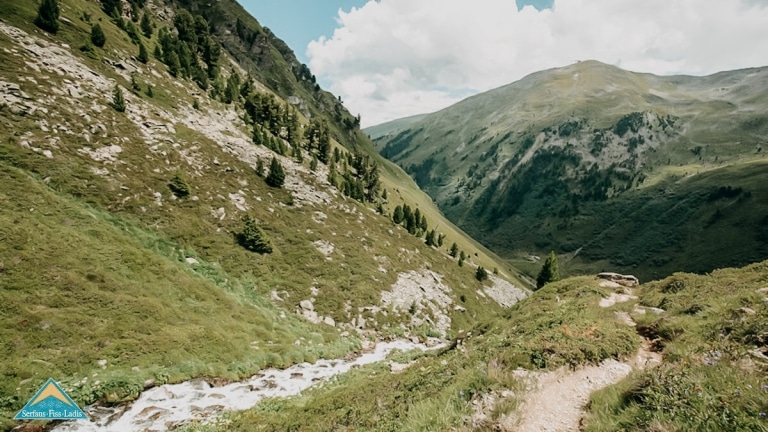
Preparation for the hiking holiday
The right preparation and equipment for a hiking holiday
Hiking is and remains the most popular sport in the mountains. But you don’t just need a good physical condition to storm the summits. The right equipment and precise tour planning are also important so that you arrive back in the valley in good health.
Good endurance and acclimatisation:
The most important physical requirement for mountain hiking is good basic endurance. Training for 30 minutes three times a week by walking, cycling or jogging four weeks beforehand is the best preparation for tours in the high mountains. But breathing, heart and circulation must also be able to cope.
As a rule, it is advisable to increase the workload slowly so that the organism can get used to the stress and the altitude. An acclimatisation period of 3 to 5 days is recommended from 2,000 metres.

Properly equipped for the ascent:
The right equipment is the be-all and end-all when hiking in the mountains. Hiking boots should be largely waterproof, ankle-high and large enough so that you don’t bump into the front when descending. Leather is recommended for the upper and a Goretex insole for the inside. You can only be sure-footed in the mountains if you have a sturdy rubber tread sole. A tip: don’t start out with brand new mountain boots, as they can quickly give you blisters. Specially padded hiking socks also help to avoid pressure points.
On the one hand, clothing should protect you from heat accumulation and heat stroke, and on the other hand it should prevent you from getting hypothermic. Heat and sweat must be transported to the outside. Wetness and cold, on the other hand, must not penetrate inside. The “onion principle” works best.
Breathable mixed fabrics or sheep’s wool products are best suited for underwear instead of pure cotton. It wicks moisture away from the body. This prevents you from getting cold during breaks. For outerwear, materials that are waterproof but permeable to water vapour are suitable; e.g. Goretex. The clothes must also be robust and hard-wearing and allow enough freedom of movement. You should always have a change of clothes in your rucksack.
Food:
If you want to really enjoy mountain hiking, your body should get enough calories and plenty of vitamins and minerals. Plenty of fluids and carbohydrates provide additional energy. Before and during the hike, however, you should not eat too much or too fat. Prolonged digestion takes up too much oxygen, which the muscles then lack. During the hike, you should drink enough (water or apple juice diluted with water) and eat food that is as rich in carbohydrates as possible (bread, fruit, muesli). Mountain hiking consumes an average of 300 to 400 calories per hour.
Johann Wolfgang von Goethe
Only where you have been on foot have you really been.